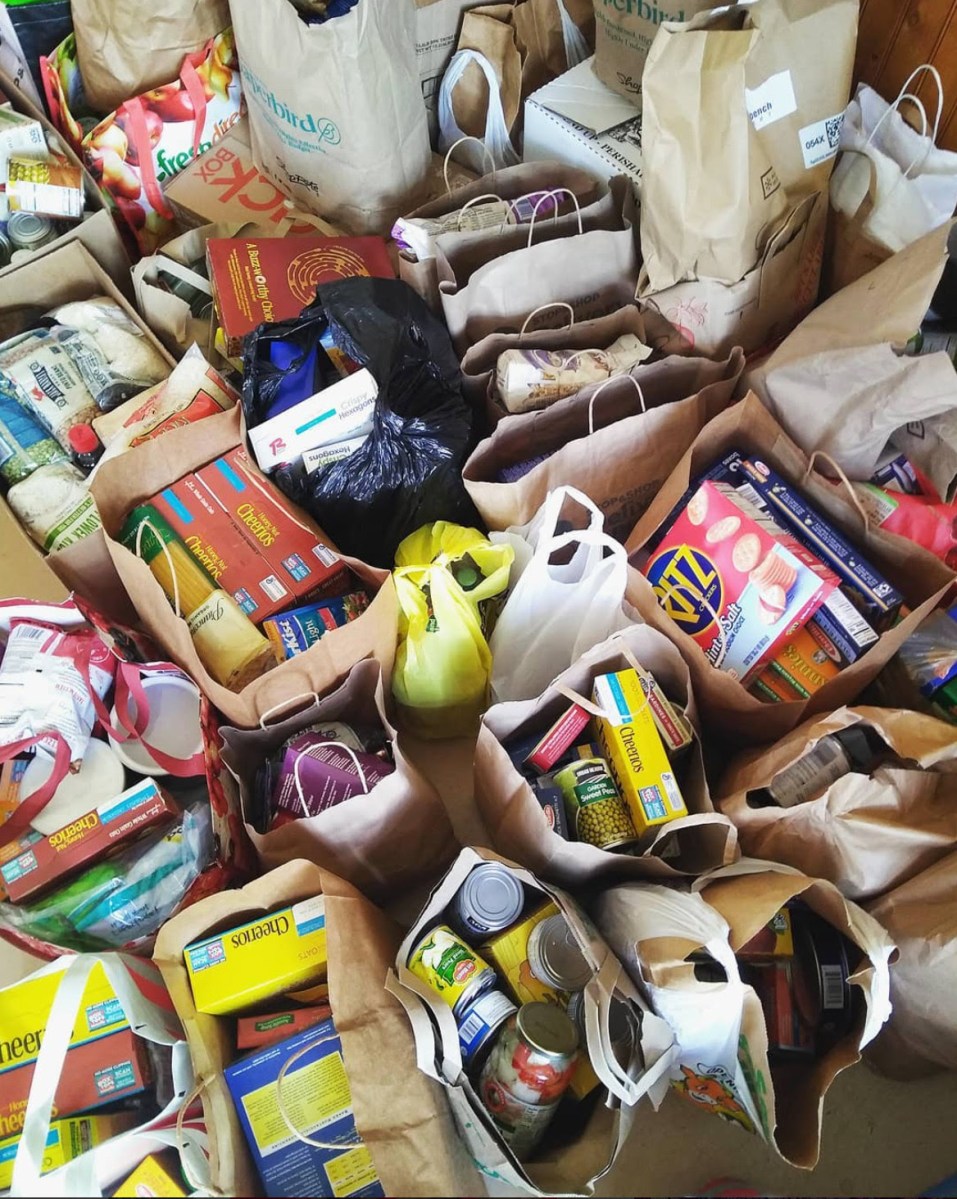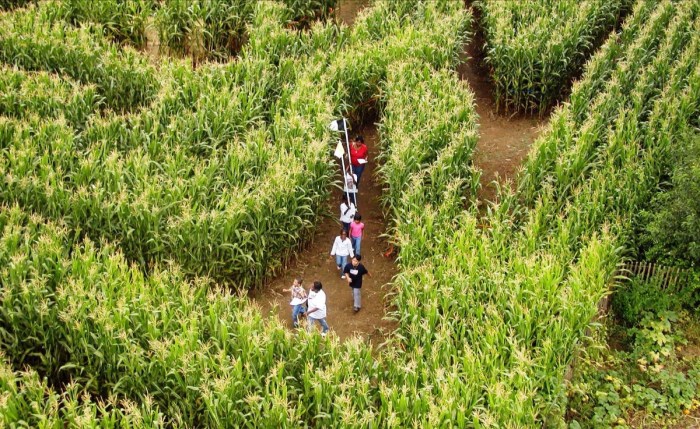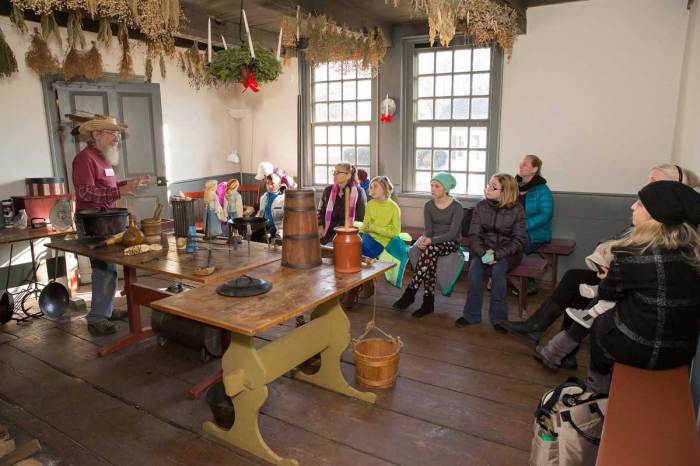The Queens County Farm Museum kicked off its holiday food drive to support the health and wellness of the CUNY community Thursday, Nov. 10. The food drive is being held in partnership with Queens College.
From Nov. 25 until Dec. 31, the Queens County Farm Museum will be accepting shelf-stable food item donations. Visitors, neighbors and the general public are encouraged to stop by their Farm Store and drop off healthful, packaged, nonperishable provisions to support local CUNY families in need. Shelf-stable food can include noodles and pasta, oatmeal, canned or dried beans, packaged fruit and vegetables, soups, stews, lean meats and canned fish.
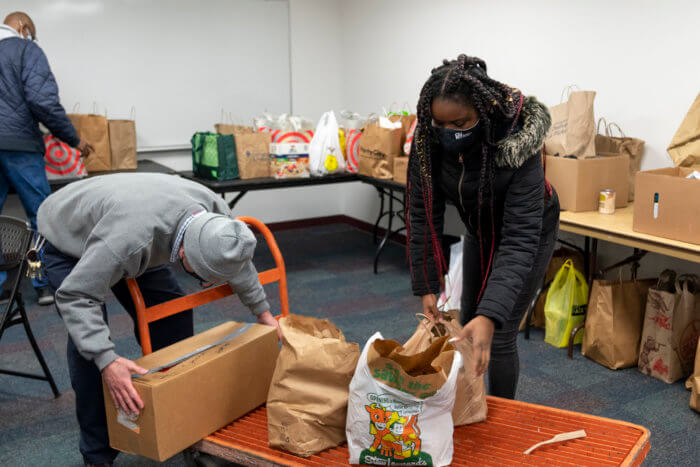
According to the United States Department of Agriculture, food insecurity is defined as having limited access to adequate food due to a lack of income or other resources. With the harvest season having come to a close, the Queens County Farm Museum is now able to turn its attention toward its annual food drive.
“Don’t let hunger stand in the way of CUNY students’ academic dreams,” Executive Director of Queens County Farm Museum Executive Director Jennifer Walden Weprin said. “When stocking up on pantry staples this holiday season, remember to pick up extra items to support this vital community initiative. We’re so grateful for the generous contributions made to this food drive in previous years and know our community will turn up to support one another again at this crucial moment when the cost of groceries is becoming prohibitive for many CUNY families.”
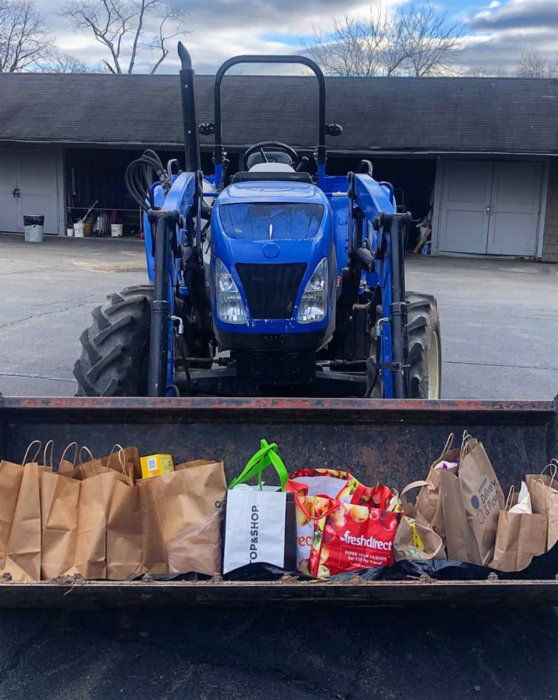
This drive allows the Queens County Farm Museum to accomplish one of its core values of feeding New Yorkers and providing access to quality meals. They encourage the food donations to be just as diverse as the people residing in the borough. Those interested in contributing can visit the Farm Store during the farm’s regular hours, 10 a.m. to 5 p.m., each day. The store will be closing at 2 p.m. on Christmas Eve and will not be open on Christmas Day. Expired items won’t be accepted.
“The Queens College community is deeply grateful to Queens County Farm Museum Executive Director Jennifer Walden Weprin and her superb team for partnering with us again this holiday season to help alleviate food insecurity,” Queens College President Frank Wu said. “This program is eminently successful due to the generosity of the Farm Museum’s patrons. Queens College and CUNY students benefit and therefore, it contributes to the support they need to effectively focus on their academic studies and goals. Many thanks to all New Yorkers who are participating this year.”
The City University of New York is the largest urban public university in the nation. It is the country’s most successful higher education system when it comes to graduating students from low-income families or who are first-generation Americans. According to a 2018 Health CUNY survey, nearly 40% of CUNY’s student population comes from households earning less than $20,000 a year.
A 2021 article by Heidi E. Jones et al in the Journal of Urban Health, titled “The Impact of the COVID-19 Pandemic on College Students’ Health and Financial Stability in New York City,” stated that 50% of CUNY students reported often or sometimes worrying about running out of food before being able to afford more. Additionally, 27% reported often or sometimes skipping a meal because they were unable to afford food. Forty-one percent of CUNY students were eligible for benefits from the Supplemental Nutrition Assistance Program (SNAP).
The Queens County Farm Museum showcases New York City’s 300-year history of agriculture as a way of life. The Farm Museum is a New York City Landmark and on the National Register of Historic Places.
Free admission is offered 354 days per year and a wide variety of acclaimed education programs and public events take place there. More than 500,000 visitors are welcomed a year and it serves as a vital resource connecting people to agriculture and the environment.

